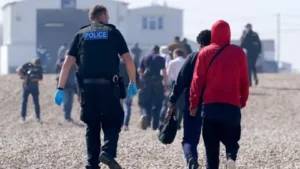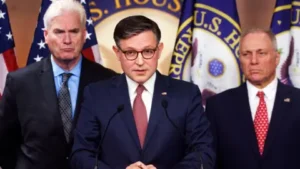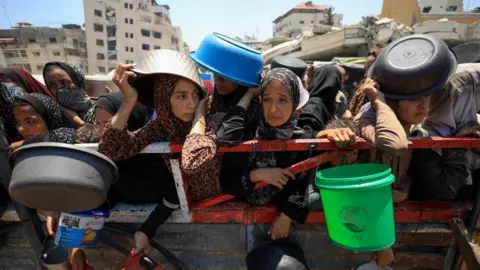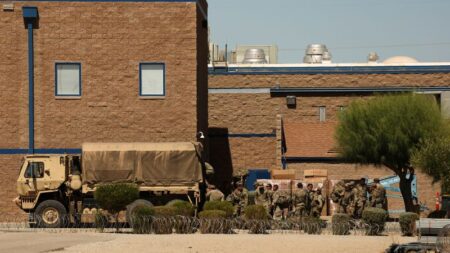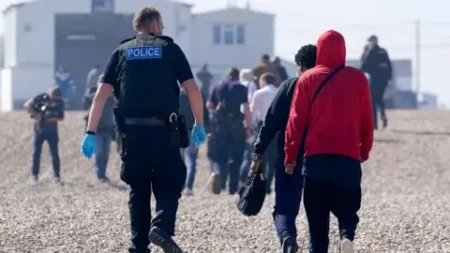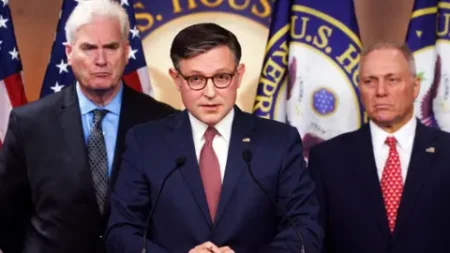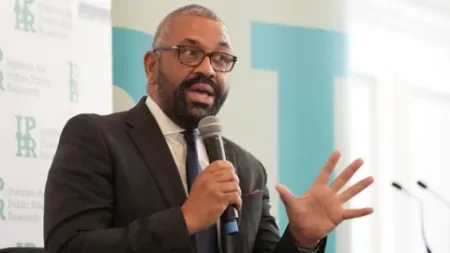The ongoing Israeli-Palestinian conflict, especially the recent escalation of violence in Gaza, has raised significant scrutiny over Israeli actions and their potential implications under international law. Journalist Jeremy Bowen highlights that many allies of Israel are becoming increasingly aware of evidence suggesting that war crimes are allegedly mounting in Gaza. As each day passes, the toll of the conflict grows heavier on civilians, raising ethical questions about military conduct and the humanitarian crisis unfolding before the international community.
Bowen recalls pivotal moments leading up to recent events, such as Israel’s Prime Minister Benjamin Netanyahu’s handling of threats from Hamas, particularly prior to the deadly attacks on October 7, 2023. While Netanyahu portrayed the Palestinian issue as one requiring management, he also facilitated the flow of funds from Qatar to Gaza, seemingly prioritizing different geopolitical relationships with nations like Saudi Arabia and Iran. The assumptions held by international leaders, including former U.S. President Joe Biden, about peaceful negotiations between Israel and Saudi Arabia turned out to be naive. This misjudgment contributes to a mounting atmosphere of distrust and instability in the region.
In the wake of the October attacks, which claimed primarily civilian lives and took substantial hostages, Netanyahu has faltered in addressing questions about his administration’s failures. Concerns linger regarding the overarching conflict between Jews and Arabs, one that has deep historical roots and has arguably reached a critical point in the 21st century, paralleling moments of major escalation in the past, such as in 1948 and 1967.
As international responses evolve, it becomes increasingly clear that the humanitarian crisis in Gaza has reached unprecedented levels. Coverage of the war and the associated atrocities is hindered by restrictions on foreign journalists, adding further layers of complexity to reporting an already convoluted situation. Bowen notes the bravery of Palestinian journalists, many of whom have lost their lives while reporting from within the war-torn territories.
The violence perpetrated during the conflict has sparked concerns of war crimes on both sides. The actions of Hamas during its attacks on October 7, resulting in the death of over 1,200 Israeli civilians, alongside the continued bombings and actions by Israeli forces leading to substantial civilian casualties in Gaza, have prompted a reevaluation by key global players. Reports of Israeli military strategies leading to starvation and widespread destruction in Gaza have drawn condemnation, with allies expressing frustration over the situation. The International Criminal Court has issued arrest warrants against Netanyahu and former defense officials, reflecting the gravity of the accusations against Israel.
Nonetheless, even traditional allies seem exasperated with Israel’s ongoing military actions, particularly given the responses to civilian suffering. Notably, influential countries, including several members of the European Union, Canada, and Japan, have united in condemning these practices, highlighting the urgent need for humanitarian assistance and underscoring the dire conditions faced by Gazans. The response from government officials, including Britain’s Foreign Secretary David Lammy, emphasizes the critical call for addressing the humanitarian crises, especially for children and families caught in the violence.
Amidst this turbulence, the dynamics within Israel itself are shifting. As Netanyahu faces pressure from extremist factions within his coalition, the possibility for negotiation and ceasefire emerges, highlighted as a key step toward reducing violence and addressing humanitarian needs. With the Israeli Knesset preparing for its summer recess, the political landscape appears poised for potential change—one that may lead to renewed efforts for a truce and re-engagement in dialogue. However, the road forward remains fraught with uncertainty as history shows that while ceasefires may halt immediate violence, they often fall short of addressing the underlying issues that perpetuate conflict in the region.
Ultimately, as Bowen notes, the evolution of the conflict and the international community’s response will shape not only immediate humanitarian outcomes but also the longer-term geopolitical ramifications that could haunt decision-makers for years to come.


